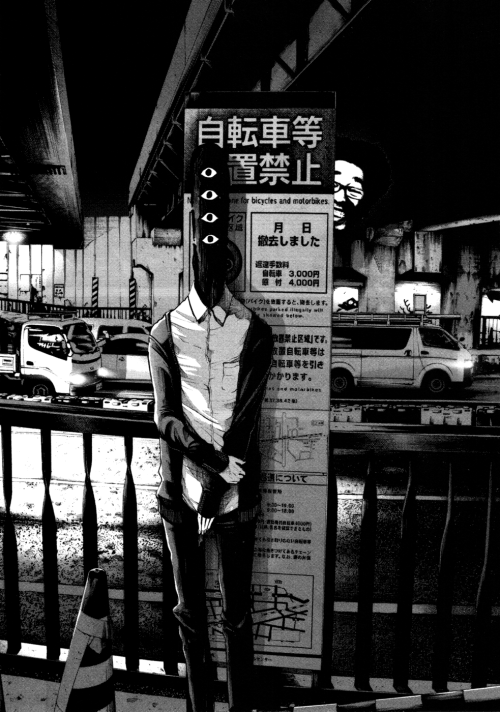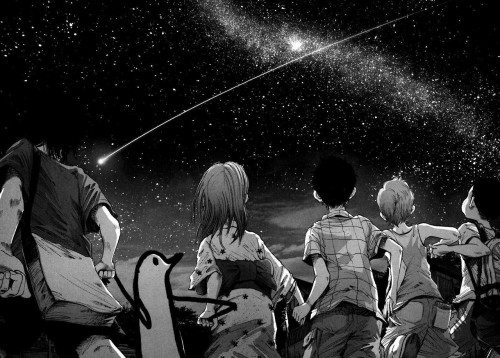I spent two days reading up to the latest releases of Oyasumi Punpun. I spent two days kicking myself for not reading Inio Asano’s longest-running work sooner; assuming it would be inferior to the tight, refined narratives of his one shots. I spent two days crying over the fact that no-one picked up the English-language publishing licenses when Tokyopop folded (goddamnit, just take my money, I’m begging you!)
The thing most people will tell you Oyasumi Punpun is about is the fact that the main character, Punpun, and his immediate relatives all look like cartoon ducks scrawled messily on a bathroom wall. The might tell you that it’s about a kid who can summon and speak to God by shouting “Dear God, Dear God, tinkle-tinkle hoy!”. They might tell you that it’s about adolescents, or a weird cult, or any number of things. They’ll tell you it’s about Punpun’s relationship his childhood friend Aiko. They’re right, but they’re also missing the point.

What Oyasumi Punpun is, like many of Inio Asano’s works, is magical realism of the highest order, intermixed with a lethargy towards living that only the highly perceptive and often depressed feel. For every heart-wrenchingly beautiful, warm, emotive, and loving scene Asano deals us, Punpun slogs through the worst of humanity’s shit. He surrenders to his own desires for sex, for human connection, for love. All the while, a bizarre subplot involving the “Dark Spot” and the impending doom of humanity as predicted by a homeless man/son of a cult leader seems as if it will collide with Punpun’s life, but thus far has resulted in nothing but near-misses.

It’s easy to read Oyasumi Punpun as a story about depression and alienation. Again, I think you’d be right, but also missing the point. The thing with depression is that in its darkest hours the beauty of the world can be that much more pronounced, tangible, inhalable by all your senses. When you’re happy, it all just seems numbing, somehow. There’s a certain seductiveness about the darkness – and the depth of feeling and beauty that can come with it – that you can only see when you’re sad. And when you rise from a depression, you always remember the sensation, and that seductiveness always threatens to draw you back in from the numbness of everyday happiness. These moments of sheer beauty are portrayed lovingly in the manga – in stark contrast to Punpun’s (and other’s) seedy encounters with “God”, or their own spirituality – and treated as almost animistic in sense. This is, of course, aided by Inio Asano’s virtuoso skill as a mangaka. The moments of beauty run deep as a river, and Punpun spends his entire life wading through the numbness of the everyday, and sinking back into depression on a quest to find those bright spots of beauty.
There’s a moment in the manga when, upon moving into their family home, Punpun’s father says “I always thought owning a house was my goal in life. Turns out it was just a checkpoint.” Oyasumi Punpun, in a way, is entirely bound by this idea. Just when you think it’s over – just when you think there’s a happiness that will last, or a relationship that won’t sour – Asano takes the opportunity to show that nothing is secure, nothing is sacred, nothing is pure, but simultaneously, nothing is worthless. Throughout all the sadness Oyasumi Punpun portrays to its readers, one refrain remains: “I love you all more than I can bear.”
Goodnight, Punpun.

Leave a Reply